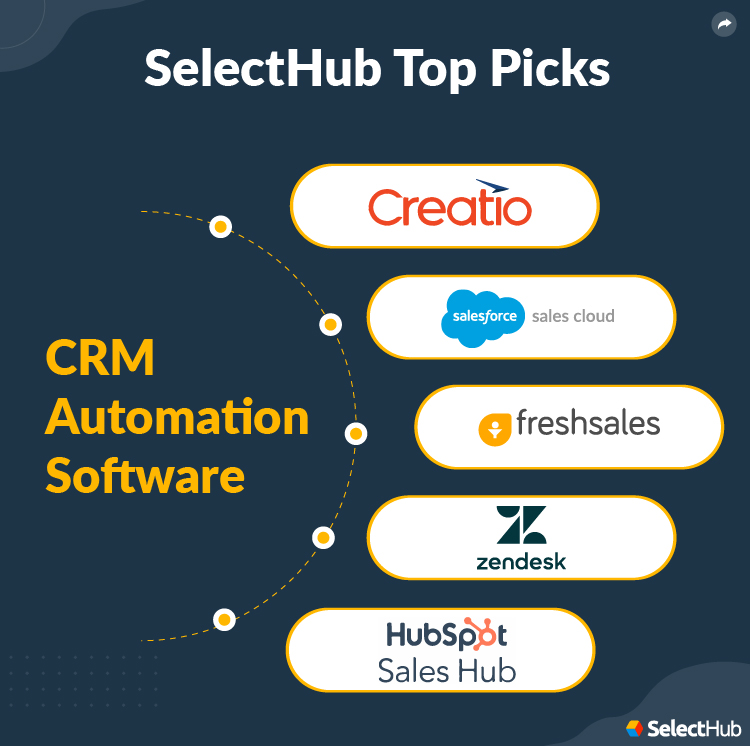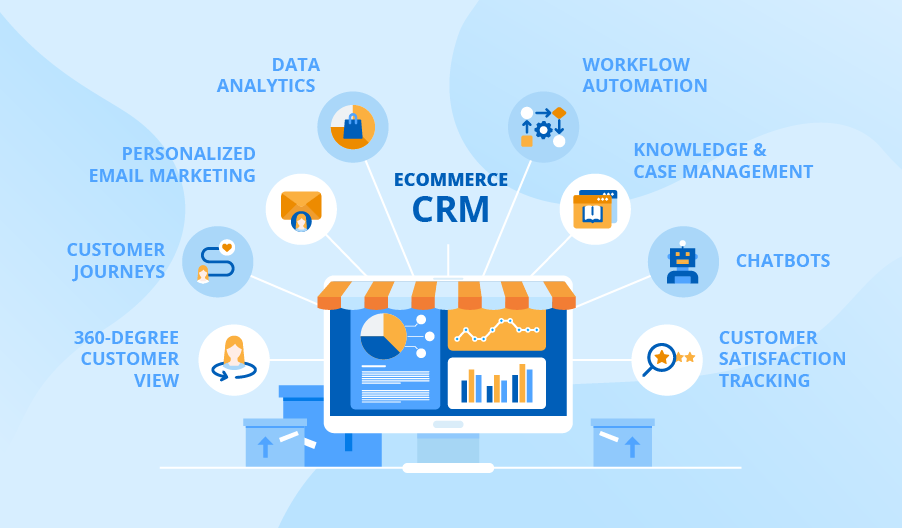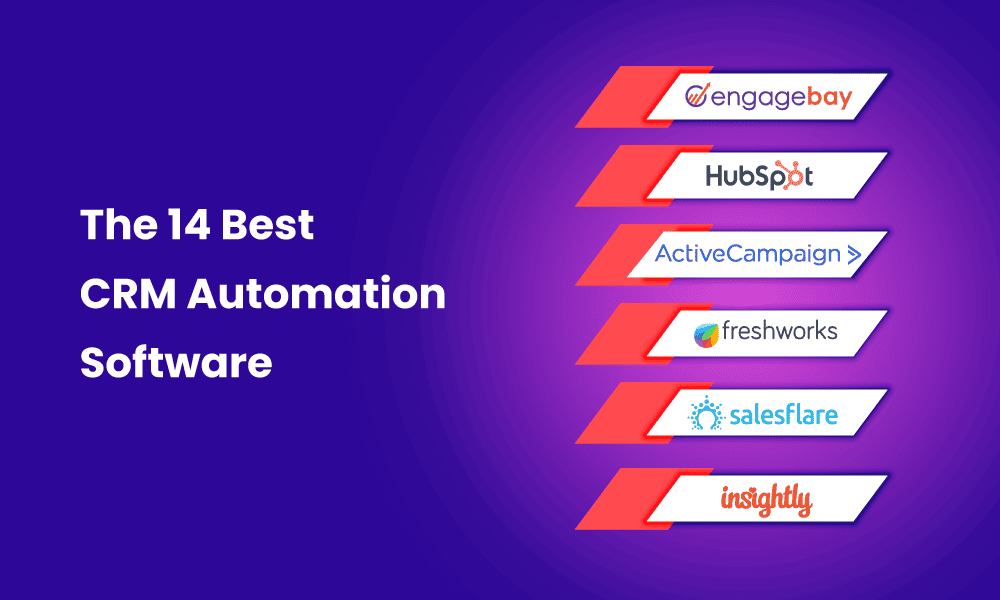crm automation software transform customer relations easily
With crm automation software at the forefront, businesses are rewriting the rules of customer engagement and efficiency in ways that were once unimaginable. From streamlining sales processes to empowering marketing teams, this technology is quietly revolutionizing how organizations connect with their customers, opening the door to smarter workflows and more meaningful relationships.
crm automation software is designed to help businesses automate repetitive tasks, centralize data, and provide actionable insights for every department. Its evolution from basic contact management to sophisticated, AI-powered platforms marks a major leap in operational agility. Companies can now effortlessly nurture leads, automate marketing campaigns, and deliver personalized support, all while minimizing manual effort and maximizing productivity.
Introduction to CRM Automation Software
Customer Relationship Management (CRM) automation software has become a cornerstone of modern business strategy, enabling organizations to streamline how they manage customer interactions, sales processes, and service operations. By automating routine tasks and centralizing customer data, CRM automation tools help businesses deliver more personalized experiences and build lasting relationships with clients.
From its origins in the 1980s as basic contact databases, CRM systems have evolved dramatically. Early solutions primarily focused on storing customer information and tracking interactions. Over time, the need for greater efficiency, scalability, and actionable insights led to the automation of processes such as lead qualification, email follow-ups, and pipeline management. Today’s CRM automation platforms are cloud-based, feature-rich, and closely integrated with a wide range of business applications.
The main benefits of adopting automated CRM solutions include improved productivity, enhanced data accuracy, and better customer engagement. However, businesses may face challenges such as data migration complexities, user adoption hurdles, and the need for continuous process optimization.
Main Benefits and Challenges of CRM Automation Adoption
Implementing CRM automation can transform daily operations, but it also brings its own set of considerations. The following points highlight both the advantages and potential obstacles companies typically encounter:
- Increased efficiency through reduced manual data entry and streamlined workflows.
- Enhanced customer insights thanks to real-time analytics and reporting tools.
- Consistent communication via automated email or messaging sequences.
- Costs and time required for integrating with existing business systems.
- Potential resistance from teams adapting to new technology and processes.
- Ongoing need for data quality management and policy updates.
Key Features of CRM Automation Software
Modern CRM automation platforms stand out due to a robust set of features designed to address the multifaceted needs of sales, marketing, and support teams.
Core Features Found in Leading CRM Automation Tools
The table below Artikels essential features found in top CRM automation solutions, illustrating their roles and associated benefits.
| Feature | Description | Typical Use Case | Benefit |
|---|---|---|---|
| Workflow Automation | Automates repetitive sales, marketing, and support tasks. | Drip email campaigns, follow-up reminders, task assignments. | Boosts productivity and minimizes human error. |
| Lead Management | Tracks, scores, and nurtures leads throughout the sales funnel. | Qualifying prospects based on engagement and behavior. | Improves conversion rates by focusing on high-potential leads. |
| Reporting & Analytics | Provides actionable insights through dashboards and custom reports. | Analyzing sales performance, campaign ROI, and customer trends. | Enables data-driven decision making. |
| Integration Capabilities | Connects with third-party apps (ERP, email, social media, etc.). | Syncing data across platforms and automating cross-system workflows. | Ensures unified, up-to-date information across the business. |
Advanced Features That Differentiate Top-Tier CRM Automation
While all CRM platforms offer essential automation, leading solutions deliver advanced capabilities that drive next-level performance.
- AI-driven predictive lead scoring and customer segmentation.
- Omnichannel engagement (integrated email, SMS, chat, social messaging).
- Automated workflow branching based on customer behavior or deal stage.
- Customizable dashboards and real-time KPI tracking.
- Integrated document management and e-signature automation.
Workflow Automation, Lead Nurturing, and Reporting Processes
Automated CRM workflows enable businesses to create seamless, logic-based processes. For example, when a new lead is added, the system can automatically assign the lead to a sales rep, schedule a follow-up, and send a personalized welcome email. Lead nurturing sequences track engagement and trigger targeted messages based on user actions. Reporting functions aggregate these activities, presenting comprehensive views of sales performance and customer journeys.
“Automated CRM workflows transform manual, time-consuming tasks into efficient, consistent processes—freeing teams to focus on high-value interactions.”
Main Use Cases and Industry Applications

CRM automation software is adaptable across a broad range of industries and business functions. Each sector leverages automation to address unique pain points and improve customer-facing operations.
Industry-Specific Applications of CRM Automation, Crm automation software
From retail to healthcare, companies tailor CRM automation to suit specialized workflows. In retail, automation might focus on personalized promotions or inventory-triggered communications. In the financial sector, compliance and secure document handling are critical. Healthcare organizations automate appointment reminders and follow-ups to enhance patient engagement.
Common Use Cases in Business Operations

The most widespread applications of CRM automation span sales, marketing, and support functions. These use cases demonstrate the platform’s versatility and impact on operational efficiency.
- Sales pipeline management: Automated lead assignment, deal stage progression, and forecast generation.
- Marketing automation: Trigger-based campaigns, lead nurturing sequences, and analytics integration.
- Customer support ticketing: Case routing, escalation workflows, and feedback survey automation.
Sector-Wise Benefits of CRM Automation

The following table highlights CRM automation benefits across industries, accompanied by real-world tools commonly used.
| Industry | Example Process Automated | Expected Outcome | Notable Tools |
|---|---|---|---|
| Retail | Personalized email promotions triggered by purchase history. | Increased customer retention and repeat sales. | Salesforce, HubSpot |
| Healthcare | Automated appointment reminders and follow-ups. | Fewer no-shows, improved patient satisfaction. | Zoho CRM, Microsoft Dynamics 365 |
| Finance | Onboarding workflow automation and compliance tracking. | Reduced onboarding time, improved regulatory compliance. | Pipedrive, Freshsales |
| Manufacturing | Inventory status alerts and order processing automation. | Shorter lead times, fewer stockouts. | SAP CRM, Insightly |
Final Conclusion
Embracing crm automation software is more than an upgrade—it’s a strategic move for any business looking to stay ahead in today’s competitive landscape. By automating routine tasks and unlocking deeper data-driven insights, organizations can focus on building stronger relationships and driving lasting results. The journey toward smarter business starts with the right tools, and crm automation software is leading the way.
Essential FAQs: Crm Automation Software
What is crm automation software?
crm automation software is a platform that automates and manages customer relationship processes, including sales, marketing, and support, to improve efficiency and customer experience.
Who should use crm automation software?
Businesses of any size that want to streamline their customer interactions, nurture leads more effectively, and gain actionable insights can benefit from crm automation software.
Can crm automation software integrate with existing tools?
Yes, most modern crm automation software offers robust integration capabilities with tools like email platforms, ERP systems, eCommerce, and communication apps.
Is crm automation software difficult to implement?
Implementation complexity depends on the size of the organization and existing processes, but many solutions offer user-friendly onboarding, training resources, and support to ensure a smooth transition.
How does crm automation software improve ROI?
By automating repetitive tasks, reducing manual errors, and providing data-driven insights, businesses can save time, cut costs, and increase revenue through more effective customer management.